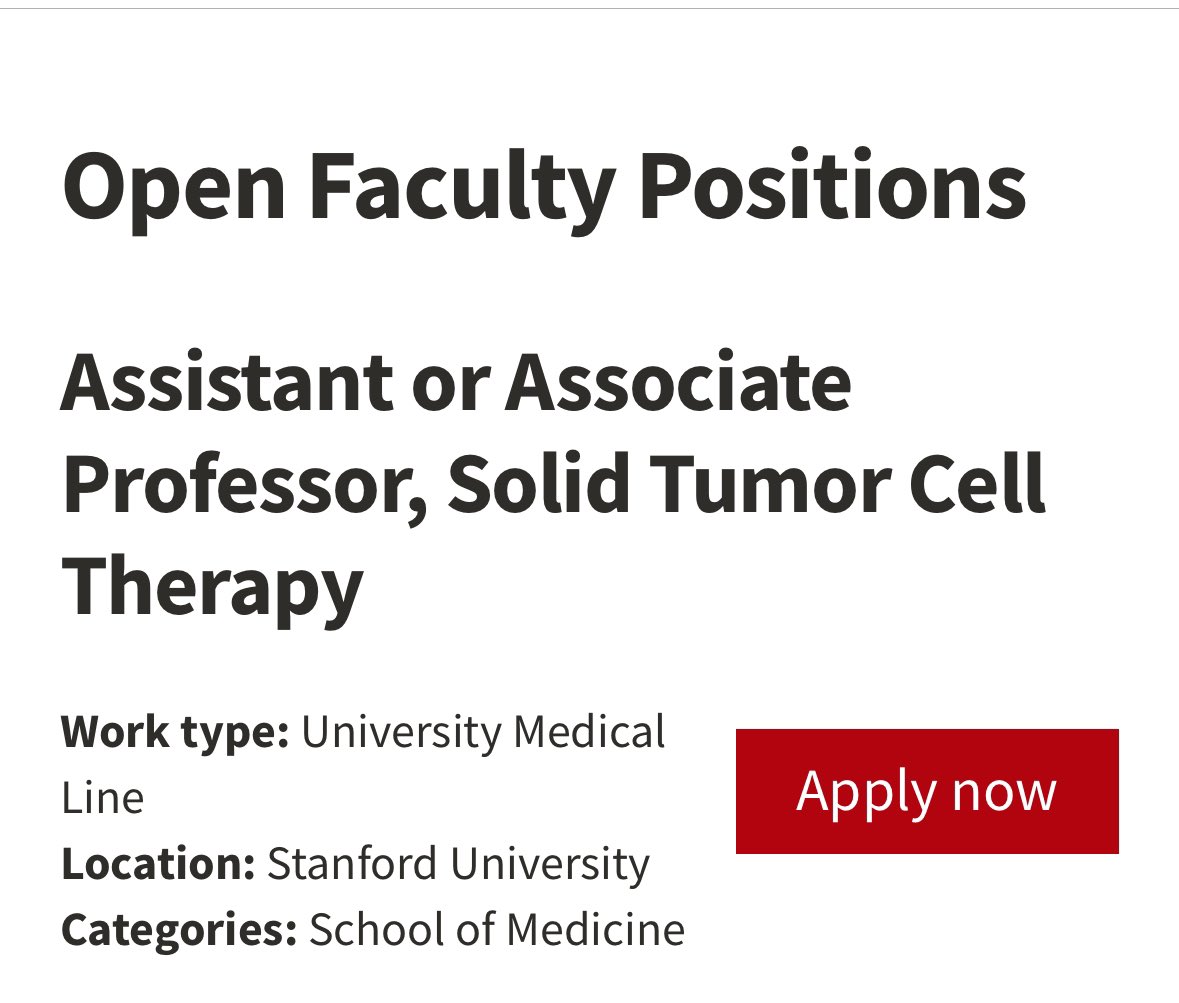Open Faculty Positions: The Division of Oncology in the Department of Medicine at Stanford University is seeking a board-certified or eligible medical oncologist for the position of Assistant or Associate Professor in the University Medical Line (UML). The candidate should have expertise in solid tumor cell therapy, with a preferred clinical focus in melanoma. We are particularly interested in early-career professionals who can contribute to clinical, translational collaborations, and trials focused on solid tumor therapeutics.
Assistant or Associate Professor, Solid Tumor Cell Therapy
Designation
Assistant Professor / Associate Professor
| Category | Details |
|---|---|
| Work Type | University Medical Line |
| Location | Stanford University |
| Research Area | Solid Tumor Cell Therapy, Melanoma |
| Eligibility/Qualification | – MD or MD/Ph.D. – Board certified or eligible in medical oncology – Track record of research funding and strong publication record (for Associate Professor) – Potential for funding and publications (for Assistant Professor) |
Job Description
The successful candidate will:
- Establish new clinical and translational collaborations.
- Conduct clinical and translational trials focused on solid tumor cell therapeutics.
- Teach fellows and other trainees.
- Participate in oncology clinics and accompanying tumor boards.
Faculty rank will be determined by the qualifications and experience of the successful candidate. The major criteria for appointment shall include excellence in clinical care, clinical teaching, scholarly activity that advances clinical medicine, and institutional service.
How to Apply
Interested candidates should submit:
- A CV
- A brief letter of interest
- The names of three references
For questions, please contact Mihaela Bozdog at mihaelab@stanford.edu.
Last Date to Apply
Until position filled
Stanford University is an equal employment opportunity and affirmative action employer. All qualified applicants will receive consideration for employment without regard to race, color, religion, sex, sexual orientation, gender identity, national origin, disability, protected veteran status, or any other characteristic protected by law.










